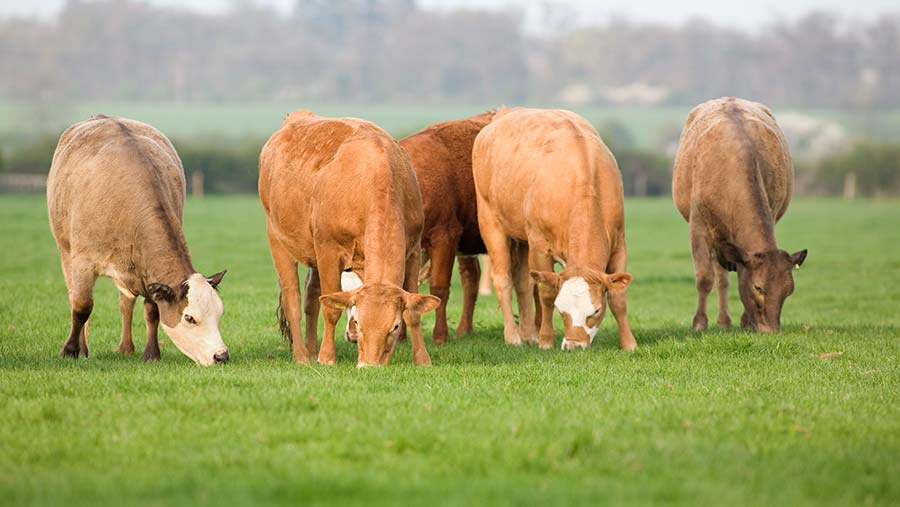England records lowest TB new herd incidents in 20 years
 © Tim Scrivener
© Tim Scrivener The latest official government data on bovine TB indicates that cases continue to decline in England, but there is no sign of a similar drop-off in Wales.
In 2023 England recorded its lowest number of new TB herd incidents in 20 years.
There were 2,460 new herd incidents in English cattle herds – a 17% year-on-year fall (down from 2,954) and the lowest figure since 2004.
See also: Defra seeks views on targeted culling to tackle bovine TB
All three TB zones in England – High, Edge and Low – recorded falls.
The High Risk Area (HRA) recorded its fewest since the 2001 foot and mouth disease outbreak. There were 1,871 new TB herd incidents in this area in 2023, down from 2,304 in 2022.
In Wales, the total number of new TB herd incidents increased year-on-year by 6%, from 592 to 630.
Big increases in two TB areas (Wales – High West, up 60%, and Wales – Low, up 52%) offset falls in the other three areas (Wales – Intermediate North, down 45%, Wales – Intermediate Mid, down 9%, and Wales – High East, down 16%).
The number of herds under restriction due to a TB incident fell by 8%, largely driven by a comparable decrease of 11% in the HRA, but increased by 5% in Wales.
Overall, 20,243 cattle in England were slaughtered in 2023 due to TB, an 8% decrease year-on-year. However, over the same period, TB cattle slaughterings in Wales increased by 8%, from 9,515 to 10,299.
Reaction
Abi Reader, NFU Cymru’s deputy president and a dairy farmer based in South Wales, told Farmers Weekly she was concerned about the significant uptick in TB cases in parts of Wales.
“We need to learn the lessons from England because these results speak for themselves,” she said.
“The Welsh Labour government’s manifesto specifically says we cannot tackle the disease in badgers, but they need to realise that if they do not show a commitment to dealing with the disease on all fronts, how can they possibly expect Welsh farmers to put their hands in their pockets and deal with it from their own side? It’s just throwing money away.”
Ms Reader called on the Welsh government once again to “look at the science on TB and not be swayed by public opinion”.
Farmers respond to Northern Ireland compensation plan
Almost 5,000 farmers in Northern Ireland (NI) have responded to a government consultation proposing cuts to compensation rates for TB-infected cattle.
The Department of Agriculture, Environment and Rural Affairs (Daera) is proposing a 25% cut in compensation for cattle with bovine TB over the next two years, to save taxpayer money.
NI farmers currently receive 100% of the market value of their stock. But the Daera plan would see this reduced to 90% in year one, then to 75% in year two.
Daera confirmed at an industry stakeholder event that 4,945 responses were received on the proposals, which it announced in January – the largest number of responses it had received to date on any TB consultation.
Ulster Farmers’ Union president David Brown said the huge number of responses from farmers sent a strong message to Daera that farmers overwhelmingly opposed the plans.
“Daera can sustainably reduce the cost of the TB programme by tackling the disease, rather than devaluing cattle’s worth after the animals have fallen victim to a disease,” he insisted.
